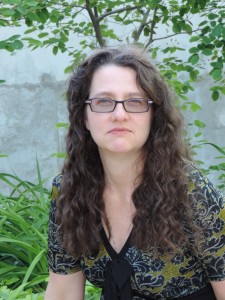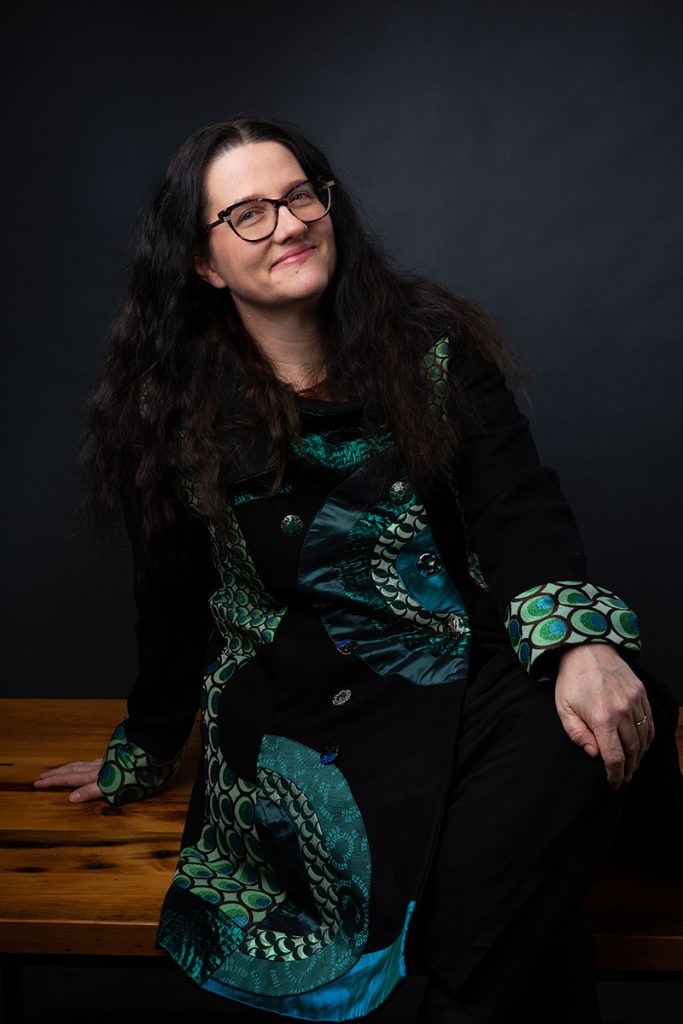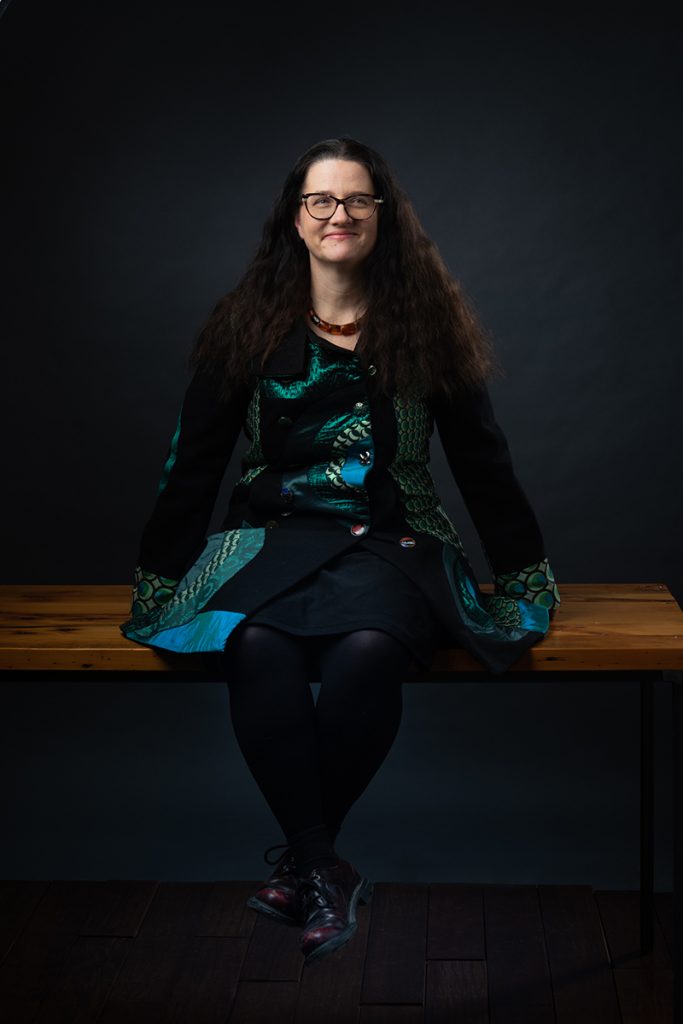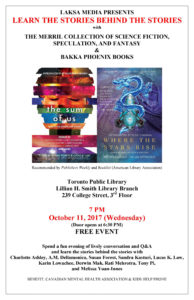
photo by Kelly Robson
Here is the kind of paragraph I absolutely love to see when one of my students is critiquing another:
Your writing has some grammatical errors. I saw some confusion between it and it’s, and several comma splices. You might want to look into subject-verb agreement too. I’ve included some great and thoroughly unimpeachable links about these rules.
The reason I love this–especially if it’s tucked in at the end of a critique, after all of the substantial issues within the manuscript have been addressed–is it means the person doing the critique has learned that it is a misguided use of time if they copyedit* their classmates‘ manuscripts.
The urge to edit in a peer workshop is a powerful one. There is no greater joy than marking up someone else’s manuscript. Track changes options in word processing software make it easy and, to be honest, it’s fun. Providing a marked-up manuscript to a classmate shows an intense time commitment, usually earns some gratitude, and gives the reader a chance to directly share their own (possibly hard-learned) writing lessons.
So why am I arguing it is a bad use of resources?
Workshop submissions should always assumed to be early drafts. What’s important in a draft stage is to get the story out, and some writers cannot get out the words if they are worrying about the commas. Some members of your workshop might be perfectly capable of fixing up their grammar in later drafts, but are submitting 10 minutes before the workshop’s drop dead deadline. The reader can’t know if either of these things is the case. You could be driving someone into a panic without meaning to.
Almost no one in a student workshop is an actual copy editor. You’re fixing the errors you can see. A copy editor, who will ideally go through the manuscript in the latter stages of production, after even the savviest author and editor have polished it to a shine, can still find and address errors 90% of us won’t even dream of. Think of the movie ads that say: professional driver, closed course. Don’t try to drive the copy-editor’s race car.
Some participants may actually alter things that are correct and make them wrong. Unless the instructor checks every alteration in every edited manuscript, there’s no guarantee that someone isn’t teaching you bad grammar. Remember, there’s nothing to stop that person with the its/it’s problem from marking up your doc!
Copy-editing actually reduces the chance some people will learn the lesson. Look at the paragraph I love, above. If you tell someone they need to learn subject verb agreement, they have to go find out what the hell that is. If you just go and fix their sentences for them, all they have to do is hit Accept Change and go on making the same mistake in the next draft.
Copy-editing reduces the chance that you’ll learn something. All that time you spend changing mistakes that the author might know how to fix themselves (and possibly also mistakes they’re making deliberately as a style choice) is time you could’ve spent practicing your substantive editing skillset. That is to say: reading the manuscript more closely for big-picture strengths and weaknesses within characterization, plot, structure, setting detail, good images, not so good images, and clear thematic content.
Balance and positivity: Most workshops encourage readers to strive for a mix of positive and negative commentary in critique, so that the author knows both what they’re doing right and where they need to improve a story or novel. A document full of typo corrections and grammar notations is, by definition, a litany of negative notes. There is almost nobody who out there takes the time to mark up a manuscript while paying equal attention to the writer’s good sentences, clever ideas, nice character nuances, and brilliant turns of phrase.
Accountability: In a face to face workshop, you have to look the author in the eye as you deliver your opinion of their work. In an online workshop, your critique post has the same effect: whatever you say is out in the clear, where you’re responsible for it—and where the other members of the workshop can debate whether they agree or disagree with your points. If you say “I was confused by X,” another reader has the opportunity to say “I thought it was crystal clear and here’s why.”
The comments you append to an annotated manuscript aren’t public fodder, not really. Even if they’re available to the rest of the group, 99% of the time nobody but the author is going to read them. You’re taking a portion of your critique and tucking it out of sight, where it can’t be discussed.
Highest and best use of time: In a student workshop you should be aiming to try to achieve two amazing things with each and every critique. One is to give your classmate the best substantial reading you possibly can. The second is becoming a better reader and writer by formulating that outstanding critique. By reading deeply, digging below the surface (which is where the grammar lives) you sharpen your own sense of story. Every second you spend polishing the buttons and shoelaces, the commas and semicolons, is one you spend depriving both yourself and the submission’s author of deeper insights.
It is not always the case that the best and most thorough readers in my class are also the best writers. But there is a strong correlation. The better someone is at critting, usually, the better they are at craft.
Grammar can be a dodge: If a story is particularly difficult to critique—which happens both with the very problematic stories and the ones that are so good they seem done!—picking at the rules of language may even be a way of letting yourself off the hook. It’s hard to read and crit a great story. It’s incredibly tough to shine the way forward for someone who’s just beginning. If you’re copy editing their piece, are you really just writing yourself a pass to not wrack your brains about how to make the ostensibly great story incandescent? Or the apparently broken piece just one doable step closer to viable?
Give it some thought.
Finally, and in case you’re wondering, I’m not saying don’t critique the author’s writing style.** “It’s ungrammatical and hard to read” is a valid part of any prose critique… but it isn’t the whole story, and probably shouldn’t be all you have to say on the subject of their line by line writing.
All writers have to learn grammar. It’s okay to tell someone you think they’re falling down on this part of the job. Make the note, pull out a few offending sentences, offer some how-to links if you like… and then dig deeper. It’s tougher, but it’ll vault your whole workshop forward, and take your own writing with it.
____________
*Most new writers don’t necessarily distinguish well between line editing and copy editing. I don’t particularly want my students line-editing each other in a separate document either, and I’ll talk about why at length sometime, but the tl;dr meat of it is in the Accountability item, above.
**I’m also not saying that instructors shouldn’t do some document editing, or that peer workshops between pros might not agree that this is useful.








 One of the things I’m doing in the first weeks of my MFA program is a top ten list of TV shows, based pretty much on whatever criteria I want, with notes on what makes them interesting. Here’s what I came up with.
One of the things I’m doing in the first weeks of my MFA program is a top ten list of TV shows, based pretty much on whatever criteria I want, with notes on what makes them interesting. Here’s what I came up with.